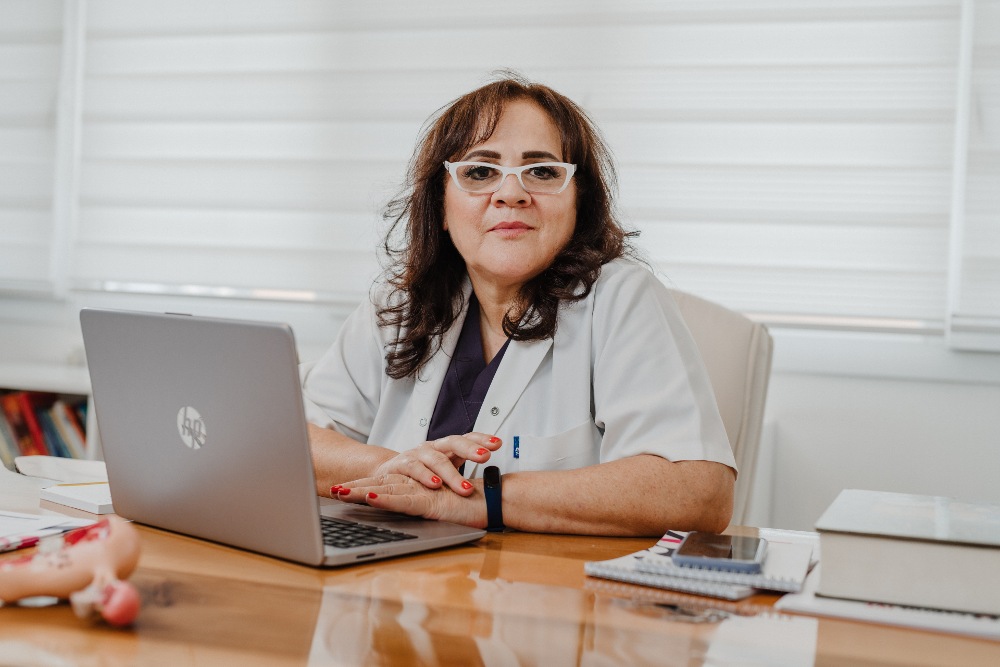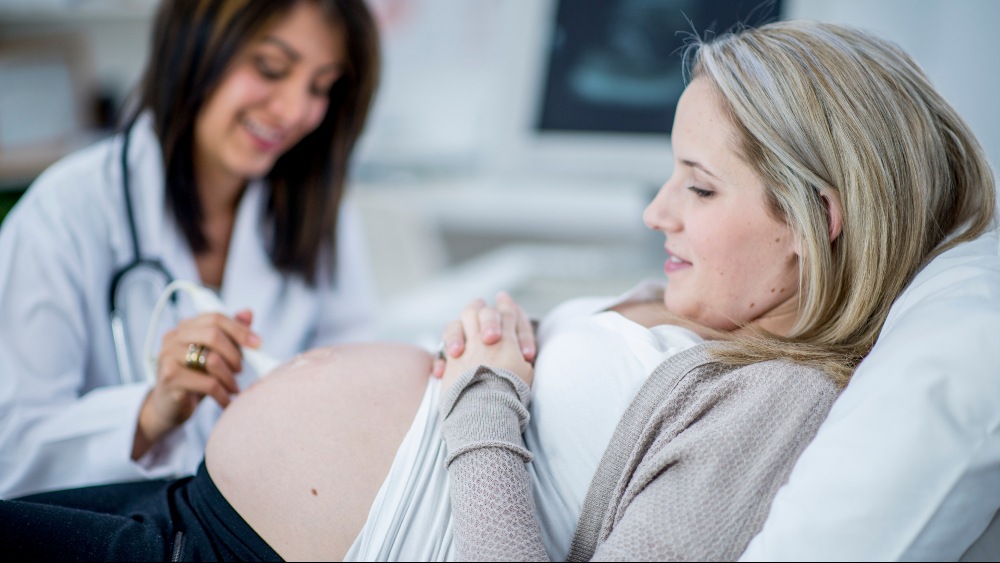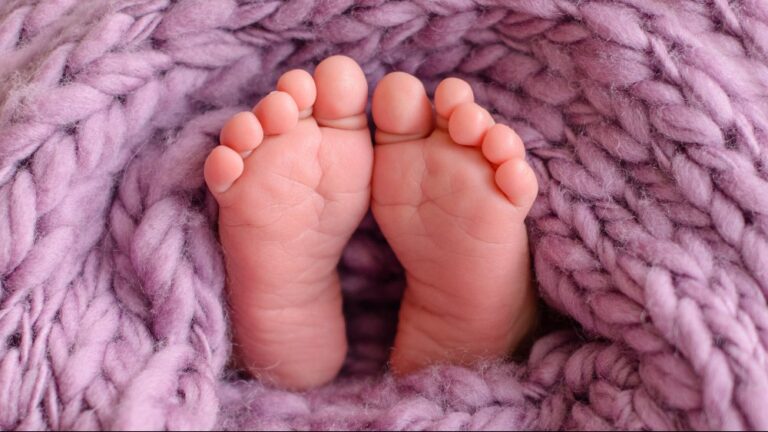I am over 45. What is the chance of using my eggs for IVF?
Recently, many women have postponed motherhood for various reasons, such as pursuing their career goals or not finding the right partner. As they reach the age of 45 and beyond, they often wonder if it is still possible to conceive using their eggs. For women in this age group, the possibility of becoming a mother using their eggs significantly decreases. The chances of a successful pregnancy with their eggs are greatly diminished due to the natural decline in fertility with age. While there are exceptions, it is generally unlikely that women over the age of 45 will have a successful IVF outcome using their eggs.
Dr. Serap Kağan, Medical Director and IVF Specialist at Cyprus IVF Hospital explains:
As a woman ages, the risk of aneuploidy (chromosomal abnormalities) in the embryo increases. Aneuploidy is a condition where the embryo has an abnormal number of chromosomes, which can lead to conditions such as Down syndrome, Edwards Syndrome, and Patau Syndrome or can result in miscarriage. Studies have shown that the rate of aneuploidy in embryos rises significantly after the age of 35 and continues to increase with advancing age. By age 45, the majority of a woman’s eggs are likely to be aneuploid, making it more challenging to achieve a successful pregnancy.

Therefore, the only viable option for these women to conceive with their genetic material is if they had the foresight to cryopreserve their eggs at a younger age when their eggs were more viable. Egg freezing at an earlier age preserves the quality and viability of the eggs, offering a potential pathway to motherhood later in life despite the natural decline in fertility that occurs with age. Egg freezing at an earlier stage provides a safeguard, allowing women to pursue motherhood later with a higher chance of success.
What are the IVF treatment options for women over 45?
While the journey to motherhood for women over 45 through IVF may present unique challenges, it also offers a range of effective treatment options tailored to individual circumstances. By consulting with a qualified fertility specialist and exploring these IVF options, women can make informed decisions that align with their goals and aspirations for starting or expanding their families later in life.
Option: IVF with own eggs
IVF using a woman’s eggs remains a possibility for some women over 45, but success rates tend to be lower compared to younger women. Before starting IVF, comprehensive ovarian reserve testing is crucial to accurately assess egg quantity and quality. While the chances of conception naturally decline with age, individual factors such as overall health and ovarian reserve status play significant roles in determining the feasibility and success of IVF with own eggs.
Option: IVF with Preimplantation Genetic Testing (PGT)
Women aged 45-50 can explore IVF treatment using their eggs, provided their hormone levels—such as AMH, FSH, E2, and antral follicle counts—indicate sufficient ovarian reserve. However, due to the increased risk of chromosomal abnormalities in embryos with advancing maternal age, undergoing Preimplantation Genetic Testing for Aneuploidy (PGT-A) is strongly recommended. PGT-A allows for the selection of embryos with normal chromosome numbers, thereby reducing the risk of miscarriage and increasing the likelihood of a successful pregnancy. Consulting with a fertility specialist to assess ovarian reserve and discuss PGT-A options is crucial in determining the most suitable path forward for achieving a healthy pregnancy later in life.
Dr. Serap Kağan explains two PGT-A techniques:
At Cyprus IVF Hospital, we conduct Preimplantation Genetic Testing for Aneuploidy (PGT-A) using two advanced techniques: Fluorescence in situ hybridisation (FISH) and Next Generation Sequencing (NGS).
Fluorescence in situ hybridisation (FISH) is a laboratory technique for detecting specific DNA sequences on chromosomes. It identifies common abnormalities on chromosomes 13, 15, 16, 17, 18, 21, 22, X, and Y out of the 23 pairs of chromosomes.
In contrast, next-generation sequencing (NGS) is a more advanced technology for preimplantation genetic testing. Unlike FISH, NGS comprehensively analyses all 23 pairs of chromosomes in embryos. This method provides early detection of various chromosomal abnormalities, whether structural or numerical, enhancing the accuracy and depth of genetic screening during IVF treatments.
The appropriate PGT-A testing method for your case will be determined based on your medical background, including factors such as age, reproductive health, IVF history (if applicable), miscarriages, and implantation failures.
Option: Tandem IVF
The tandem cycle is an IVF program in which both the expectant mother and the egg donor are simultaneously prepared for the egg retrieval procedure.
Designed for women with a low ovarian reserve, the Tandem IVF program allows patients to attempt IVF treatment with their eggs first and then use donor eggs if the initial attempt is unsuccessful.
Fertility declines with age, and as a result, IVF success rates also decrease. This is due to the lower chances of conceiving a woman’s eggs because of diminished ovarian reserve and egg quality. Tandem IVF is an excellent option for women of advanced reproductive age (over 40) or those with low ovarian reserve, regardless of age.
After analysing test and scan results, our IVF specialist may recommend a Tandem IVF cycle to increase the chances of achieving pregnancy.
The Tandem IVF process
Tandem IVF is a fertility treatment program where both your eggs and the donor’s eggs are used to create embryos for implantation. This treatment combines regular IVF and IVF with egg donation.
At Cyprus IVF Hospital, the Tandem IVF program begins with the IVF specialist reviewing your and your partner’s most recent blood tests and health reports to understand your case and ensure that this program suits you. Next, they search for the best donor candidate for you.
Dr. Serap Kağan adds:
All our egg donors are anonymous, aged between 21 and 31, and have undergone extensive screening for infectious diseases and common genetic conditions before becoming donors at our hospital.
Once you select your donor, we will start the egg stimulation process for you and the donor. After the egg retrieval procedure, the partner’s sperm will fertilise the collected eggs, creating two sets of embryos: one from your eggs and another from the donor’s eggs.
Who should consider Tandem IVF?
Tandem IVF is designed for patients who want to try IVF with their eggs first and then use donor eggs if the initial treatment does not result in pregnancy.
Women who are not yet in menopause (still menstruating) and have experienced multiple unsuccessful IVF cycles due to diminished ovarian reserve and poor egg quality may consider Tandem IVF.
Why choose Tandem IVF?
If you have a low ovarian reserve and want to avoid the time loss associated with starting a new IVF treatment with donor eggs, if your current IVF cycle does not result in pregnancy, you might consider Tandem IVF.
Additionally, Tandem IVF is cost-effective as it allows you to combine two programs (IVF with your eggs and IVF with donor eggs) instead of undergoing each treatment separately.
Option: IVF with donor eggs
For women over 45 facing challenges with their eggs, IVF using donor eggs offers a highly successful alternative. Donor eggs are typically sourced from younger, healthy women undergoing rigorous screening. These eggs are more likely to be chromosomally normal, thereby significantly improving the chances of a successful pregnancy and live birth. The donor egg process involves selecting a suitable donor, synchronising menstrual cycles, and undergoing embryo transfer.
Aside from older women, IVF with donor eggs is also a viable option for various situations:
- Absence of Ovaries: For women who do not have ovaries due to congenital absence or surgical removal.
- Diminished Egg Production: In cases of decreased egg production due to premature menopause, endometriosis, hereditary conditions, or extensive ovarian surgery resulting in significant tissue loss.
- Poor Egg Quality Regardless of Age: This refers to situations where a woman, even if she is younger, experiences several unsuccessful IVF cycles or recurrent miscarriages, which can be attributed to the quality of her eggs.
- Medical Reasons: Post-cancer treatment where ovaries or eggs may have been damaged or removed, affecting natural fertility.
- Genetic Concerns: When there is a risk of passing on genetic diseases from the female partner’s genetic makeup.
- Gay Male Couples: Seeking to build a family through IVF, where one intended father can be genetically related to the child using his sperm for fertilisation of donor eggs. A gestational carrier would be necessary to carry the pregnancy and deliver the child.
What are the requirements for donor selection?
Each region or country may have specific guidelines and requirements for donor selection and donor anonymity, reflecting cultural, legal, and medical considerations. In North Cyprus, all egg donors must remain anonymous by local regulations. At Cyprus IVF Hospital, we adhere to rigorous criteria when selecting egg donors to ensure the safety and well-being of both donors and recipients. These criteria typically include age (between 21 and 31 years), physical health, reproductive history, genetic screening, psychological evaluation, and sometimes ethnic background to match the intended parents’ preferences. Our selection process prioritises donors who are in good health, have a proven fertility record, and undergo comprehensive screening to minimise risks and optimise the success of IVF treatments.

What is the egg donor selection process?
Before starting the IVF program, you and your partner will be asked to fill out a patient information form. This will help us better understand your case by providing information about your general health, fertility status, and medical history.
After our doctor examines your tests and confirms the treatment option, we will ask you to fill out an Egg Donor Recipient form to start searching for the best donor candidate for you. We have a diverse egg donor network, so once we get information about your physical characteristics and blood type, we will check for and send you the most suitable donor options so you can choose one.
In the case of egg donation, the appropriate donor is selected according to the mother’s physical characteristics to increase the possibility that the baby looks like the intended mother (The same is considered for the sperm donor as well in the sperm donation procedure).
What is the success rate for IVF with egg donation in North Cyprus?
The success rates can vary per clinic, per laboratory and per year depending on several factors, as per below;
- Age of the patient
- The quality of sperm and embryo
- History of previous pregnancies
- Uterine or endometrial receptivity
- Lifestyle factors of the patient
The success rate per embryo transfer with fresh donor eggs (single IVF cycle) varies from 72% to 77% in North Cyprus clinics. The egg donation success rates per embryo transfer at Cyprus IVF Hospital, based on 2023 operational results, was 77%.
Why choose IVF with egg donation in Cyprus IVF Hospital?
Choosing an IVF clinic is a significant decision that can impact the success of your fertility journey. Cyprus IVF Hospital is known for its advanced technology, experienced medical team, and supportive patient care. This section will outline the key benefits and considerations for selecting egg donation services at this reputable institution.
- No waiting time for choosing donors
- A diverse egg donor network
- Women can have IVF treatment up to age 55
- Unmarried couples
- Personalised care for individual needs and preferences
- High Success Rates
- Multilingual and experienced medical team
- High-standard healthcare facilities
- Refund guarantee programs
Option: Pregnancy Guaranteed IVF Egg Donation Program
Cyprus IVF Hospital also offers a Pregnancy Guaranteed IVF program with egg donation for women up to 50. We understand the emotional and physical challenges that come with undergoing multiple IVF attempts without achieving a positive pregnancy result. Our top priority is ensuring patients feel comfortable and supported throughout their IVF journey.
To alleviate concerns, including the financial burden of IVF treatment, we have developed the Pregnancy Guaranteed IVF Egg Donation Program. This program is designed to provide peace of mind by guaranteeing a successful pregnancy or offering a 100% refund if the desired outcome is not achieved after three complete IVF cycles.
Key features of our Pregnancy-Guaranteed IVF Egg Donation Program:
- Comprehensive and fixed price: This program covers all aspects of the IVF process, providing a transparent and predictable cost structure that eliminates financial stress.
- Up to 3 complete IVF cycles: Patients are eligible for up to three complete IVF cycles using donor eggs. Each cycle includes fresh egg retrieval from an egg donor (either existing or new) and sperm collection from the partner to create a new set of embryos.
- 100% refund guarantee: If a pregnancy is not achieved after three complete IVF cycles, we offer a full refund, ensuring you can pursue your dreams of parenthood with confidence and financial security.
Our Pregnancy-Guaranteed IVF Egg Donation Program is crafted to remove psychological and financial barriers, allowing you to focus on your journey toward parenthood with reassurance and hope.
Frequently asked questions
Does your age matter with donor eggs? When it comes to IVF using donor eggs, age is less of a critical factor compared to IVF with a woman’s eggs. Here’s why:
1. Egg quality: In IVF cycles using a woman’s eggs, the quality of those eggs declines significantly with age. Women over 40 often experience lower success rates due to diminished ovarian reserve and poor egg quality. However, with donor eggs, the age of the egg donor (typically between 21 and 31 years) ensures high-quality eggs, which significantly boosts the chances of a successful pregnancy.
2. Uterine health: While the quality of eggs is essential, the age of the woman receiving the donor eggs still plays a role in IVF success. The primary concern for older women is the health of the uterus. As long as the uterus is healthy and capable of sustaining a pregnancy, women well into their 40s and even early 50s can successfully carry a pregnancy to term using donor eggs.
3. Overall health: The woman’s general health undergoing IVF is crucial. Women over 40 should undergo a thorough medical evaluation to ensure they are physically prepared for pregnancy. Conditions such as hypertension, diabetes, and other age-related health issues need to be managed effectively to minimise risks during pregnancy.
4. Increased success rates: Using donor eggs generally leads to higher success rates for older women than using their eggs. This is because the eggs are from younger, healthy donors, increasing the chances of successful fertilisation, implantation, and pregnancy.
5. Genetic considerations: Since the eggs come from a younger donor, the risk of chromosomal abnormalities, such as Down syndrome, is significantly lower. This reduces the need for extensive genetic testing and increases the likelihood of a healthy baby.
In summary, while a woman’s age does impact overall IVF success, using donor eggs minimises many of the age-related challenges. The critical factors shift from egg quality to uterine health and general well-being. Therefore, even older women can have successful pregnancies with donor eggs, provided they are in good health and have a receptive uterine environment.
What are the IVF treatment options for single women over 45?
Although pursuing motherhood through IVF can be a challenging journey for single women over the age of 45, various treatment options are still available to enhance the chances of a successful pregnancy.
1. Embryo donation (double donation)
Embryo donation, also known as double donation, is a process where both the egg and sperm are donated to create an embryo. This option is ideal for women over 45 who may have a diminished ovarian reserve and require donor sperm. At our hospital, we work with the European Sperm Bank and Cyros International to obtain sperm. All donors undergo comprehensive health screenings and genetic testing to ensure the highest level of safety by the sperm banks. Donor’s characteristic information is available on the sperm bank’s website.
Our hospital’s embryo donation program offers flexibility with fresh and frozen embryo options, catering to our patient’s preferences and specific needs.
2. Tandem IVF with donor sperm
Tandem IVF is a unique program in which both the woman and donor’s eggs are used to create embryos simultaneously. For single women over 45, this approach can be paired with sperm donation. Donor sperm fertilises both eggs, providing the necessary genetic material for embryo creation.
3. Embryo adoption
At our hospital, our approach to embryo adoption differs from traditional practices. We do not offer remaining embryos from other patients, even with their consent. Instead, we create embryo sets using donated eggs and sperm, allowing patients to adopt between 1 and 4 embryos. These embryos are stored frozen at our facility and ready for use anytime.
Our embryo adoption program is also open to couples facing infertility issues involving both partners. Once our doctor reviews your medical tests and discusses treatment options, we will guide you through filling out a donor-recipient form. This form includes details about your physical characteristics and blood type preferences. We will present you with the most suitable donor options based on your preferences.
This personalised approach ensures you can select embryos that align with your preferences and medical needs. At the same time, our comprehensive screening and storage protocols uphold the highest safety and quality assurance standards.
Final thoughts
In conclusion, for women over the age of 40 and especially those over 45, the chances of achieving pregnancy with their eggs diminish due to increased risks of chromosomal abnormalities and reduced fertility. However, there are still viable options for those who wish to become mothers. Utilizing previously cryopreserved eggs from a younger age can significantly improve the likelihood of a successful pregnancy. For those who did not freeze their eggs, exploring alternative routes such as donor eggs, tandem IVF or embryo adoption can provide fulfilling pathways to parenthood. Ultimately, while natural conception becomes more challenging with age, advancements in reproductive technology and various family-building options offer hope and possibilities for women desiring motherhood later in life.
Table of Contents




